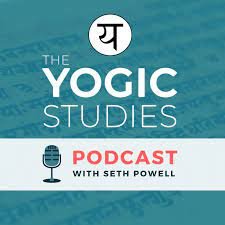In this episode, we speak with Dr. Sunila Kale and Dr. Christian Novetzke from the University of Washington about their recent publication, The Yoga of Power: Yoga as Political Thought and Practice in India (Columbia 2025). We discuss the genesis of their book beginning with court cases in both the U.S. and India involving yoga and politics, an understanding of the term yoga not only as philosophy or mind-body disciplines but as a political idea and practice, yoga's varied meanings in the ancient Rg Veda, Mahābhārata, and Bhagavadgītā, the mandala theory, yoga spies in the Arthaśāstra, yoga's political role within modern Indian independence movements including the writings of Tilak, Aurobindo, and Gandhi's famous Karma Yoga, and how the authors discovered what is potentially the earliest video footage of sūryanamaskār! We close by discussing the upcoming course, YS 134 | Yoga, Power, and Politics.
Speaker Bio
Dr. Sunila S. Kalé is a Professor in the Jackson School of International Studies at the University of Washington, Seattle. Dr. Kalé has a BA from the University of Chicago and PhD from the University of Texas, Austin. Her teaching and research are in the fields of politics, development, political economy, energy studies, and yoga studies. She is author of many essays and articles and the books Electrifying India (Stanford 2014) and Mapping Power (Oxford 2018). Her first book was awarded a prize from the American Institute of Indian Studies, and her research has been supported by fellowships from AIIS and Fulbright.
Dr. Christian Lee Novetzke is a Professor in the Jackson School of International Studies and the Comparative History of Ideas Department at the University of Washington, Seattle. Dr. Novetzke teaches and researches in the fields of religion, cultural history, and yoga studies. He has a BA from Macalester College and graduate degrees from Harvard University (MTS) and Columbia University (PhD). His books include Religion and Public Memory (Columbia 2008), The Quotidian Revolution (Columbia 2016), and Amar, Akbar, Anthony (Harvard 2016). His first book won a prize from the American Academy of Religion and his research has been supported by grants and awards from the National Endowment for the Humanities, the American Council of Learned Societies, AIIS, Fulbright, and the Guggenheim Foundation.
Links










